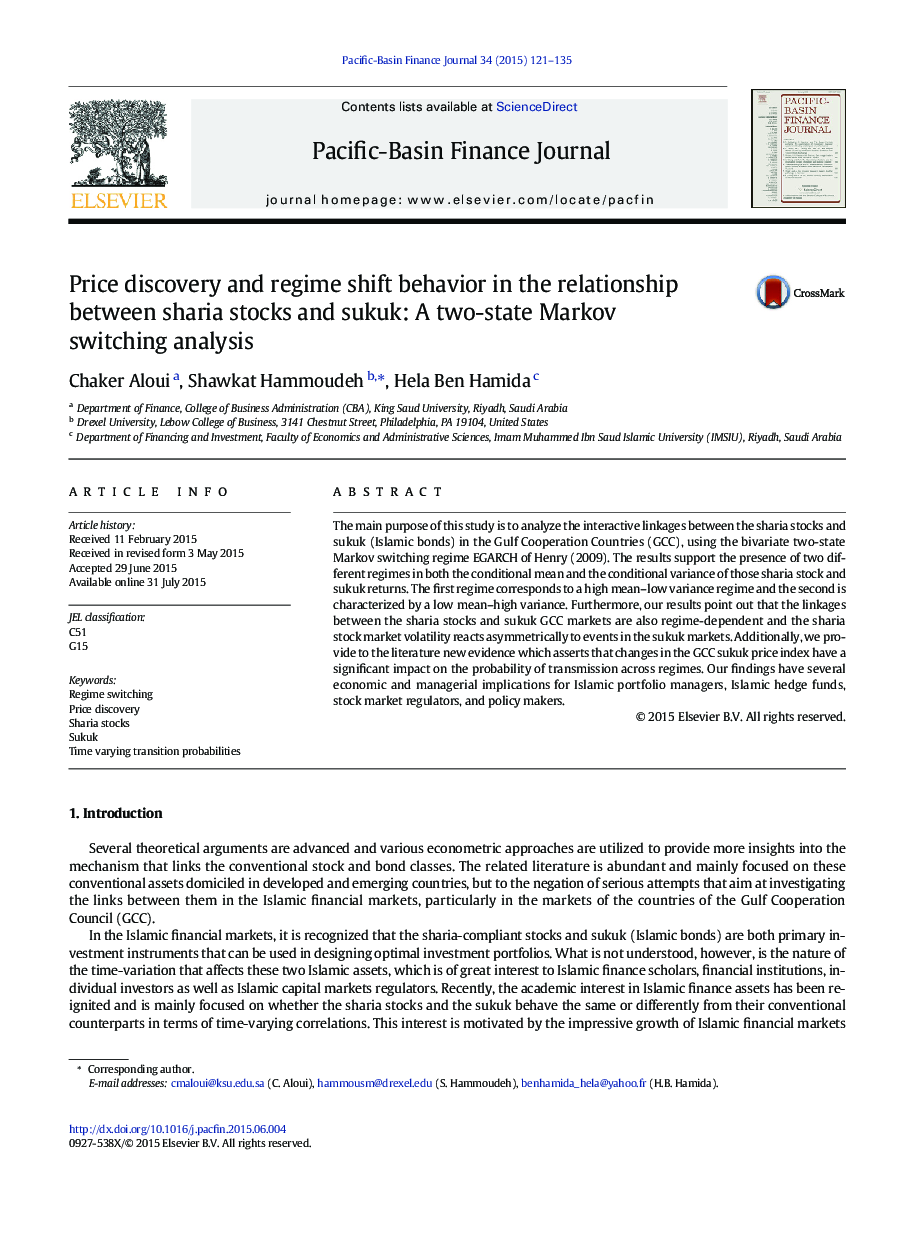| Article ID | Journal | Published Year | Pages | File Type |
|---|---|---|---|---|
| 975328 | Pacific-Basin Finance Journal | 2015 | 15 Pages |
•We examine interactive linkages between sharia stocks and sukuk (Islamic bonds) in GCC countries.•The methodology is the bivariate two-state Markov switching regime EGARCH.•Results support the presence of two different regimes in conditional mean and conditional variance.•The sharia stock market volatility reacts asymmetrically to events in the sukuk markets.•Changes in the GCC sukuk have a significant impact on probability of transmission across regimes.
The main purpose of this study is to analyze the interactive linkages between the sharia stocks and sukuk (Islamic bonds) in the Gulf Cooperation Countries (GCC), using the bivariate two-state Markov switching regime EGARCH of Henry (2009). The results support the presence of two different regimes in both the conditional mean and the conditional variance of those sharia stock and sukuk returns. The first regime corresponds to a high mean–low variance regime and the second is characterized by a low mean–high variance. Furthermore, our results point out that the linkages between the sharia stocks and sukuk GCC markets are also regime-dependent and the sharia stock market volatility reacts asymmetrically to events in the sukuk markets. Additionally, we provide to the literature new evidence which asserts that changes in the GCC sukuk price index have a significant impact on the probability of transmission across regimes. Our findings have several economic and managerial implications for Islamic portfolio managers, Islamic hedge funds, stock market regulators, and policy makers.
